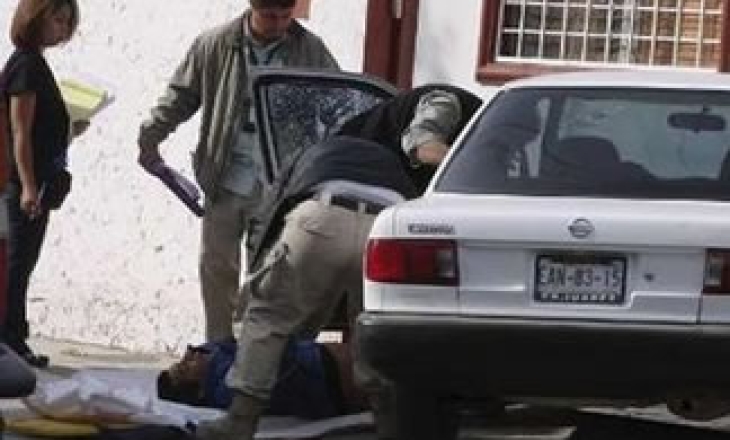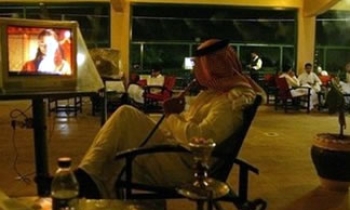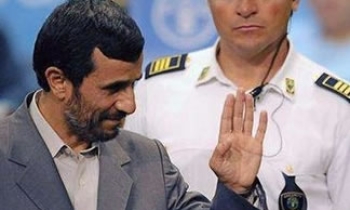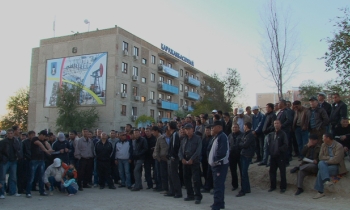The recent spurt in attacks against journalists in Mexico has press freedom groups extremely worried.
Paris-based Reporters sans Frontières (RSF) has called on US border authorities to make the necessary humanitarian provisions for journalists who are being forced to flee into exile. In particular, it requested the immediate release of Mexican journalist Emilio Gutiérrez Soto—held in the Texan border town of El Paso since June after entering the United States in an unauthorised manner—while his asylum request is considered.
“Basic freedoms, beginning with the freedom to report the news, sound like hollow words in a situation that requires help from the international community with keeping the peace and combating impunity,” RSF said.
"We call on the authorities to act immediately to stop this incredible wave of violence," said Paco Audije, Deputy General Secretary of the International Federation of Journalists (IFJ), "and we hope that they will also start the legal process to make all crimes against media federal crimes, which will ensure that there will be serious penalties for these attacks."
“Humanitarian assistance is also needed from other countries, especially the United States and Canada, which can expect to see journalists arriving and asking for their protection,” it continued. “These countries cannot ignore the risks these journalists face in their own countries or, even less, treat them as a threat. This is why we regard Emilio Gutiérrez’s prolonged detention at the request of the US immigration authorities as shocking and incomprehensible.”
"The authorities have to give protection and security escorts immediately to threatened journalists. This has been done in other countries, like Colombia, where the situation has been similar. At times like these, we cannot just wait for the slow reconstruction of the justice system," Audije said.
A reporter for the El Diario newspaper in Ascensión, in Chihuahua state (of which the capital is Ciudad Juárez), Gutiérrez fled to the border with his 15-year-old son on June 15 because he had been getting death threats believed to have come from members of the Mexican military.
After identifying themselves to a US immigration patrol, they were placed in detention. The son was released and is now in the care of relatives in El Paso. But Gutiérrez has remained in detention despite a recent reminder by the Office of the UN High Commissioner for Refugees about the obligation to provide asylum. He could remain there for several more months as a hearing scheduled for Thursday has been postponed until March.
A journalist employed by the same newspaper, Armando Rodríguez Carreón, was gunned down outside his Ciudad Juárez home on November 13. During his funeral, Jorge Luis Aguirre, the editor of the online newspaper La Polaka, received a call on his mobile in which he was told “you will be next.” As a result, he decided to travel to the United States with his family.
Luís Horacio Najera, a correspondent for the national daily Reforma, has been holed up in Canada for the past month. The managing editor of Reforma, Alejandro Junco de la Vega, publicly announced his decision several months ago to go into exile in the United States for safety reasons.
Claudio Tiznado, a reporter with Géneros, a newspaper based in Hermosillo, in the northwestern state of Sonora, requested asylum in Tucson, Arizona, in May 2007 but was unsuccessful and returned to Mexico a few months later. Misael Habana had a similar experience. Habana used to co-produce a news programme on the privately-owned national TV station Televisa with Amado Ramírez, who was murdered in Acapulco, in the southwestern state of Guerrero, on April 6, 2007. He requested asylum in Canada but gave up after seeing it was going to take a very long time.
Six journalists working for various news media have been threatened recently in Ciudad Juárez.
The offensive launched by the federal authorities against drug trafficking after President Felipe Calderón took office in 2006 triggered an unprecedented response from the drug cartels while failing to eradicate organised crime’s penetration of both the state and federal governments. More than 4,000 people have been killed since the start of the year in Mexico as a result of this undeclared war.
At total of 44 journalists have been killed in Mexico since 2000, half of them gunned down by organised crime. Another eight have gone missing since 2003.
Two other journalists are being held for unclear reasons. One is Jesús Lemus Barajas, the editor of the regional daily El Tiempo in the southwestern state of Michoacán, who had been held since May 7 for alleged drug trafficking—a subject he was investigating at the time of his arrest. The other is Roberto Tepepexteco Hipólito of the daily El Debate de los Calentanos in the state of Guerrero, who was arrested on September 6 after covering a clash between presumed drug traffickers and federal agents.
The western hemisphere’s most dangerous country for the media, more dangerous even than Colombia, Mexico was ranked 140th out 173 countries in the latest RSF press freedom index.










